The Great Moment

Brief Synopsis
Cast & Crew
Preston Sturges
Joel Mccrea
Betty Field
Harry Carey
William Demarest
Louis Jean Heydt
Film Details
Technical Specs

Synopsis
In 1868, after his death, renowned Boston dentist William Thomas Green Morton, who is credited with discovering an ether formula to alleviate pain, is mourned only by his wife Elizabeth and his friend and former patient, Eben Frost. Elizabeth recalls the events leading to William's death: William, Elizabeth and their children are living in virtual poverty while waiting for the U.S. Congress to approve the patent for his ether formula. When William is finally called to Washington, D.C., President Franklin Pierce promises to sign an amendment awarding him $100,000, as long as William agrees to file suit against an Army or Navy doctor for infringement of patent, as the military uses his ether and his specially designed glass inhaler. William protests that the lawsuit would make it look as if he is capitalizing on the pain of wounded soldiers. As feared, William is condemned by the medical community, and expelled from the American Medical Association after he loses the lawsuit. After William's former medical school professor, Dr. Charles T. Jackson, publishes an article in which he accuses William of stealing his discovery, William's health fails and he dies. Elizabeth now points out to Eben that while various formulations of anesthesia were discovered before, William's formula was the first to be commonly used. She then recalls William's marriage proposal: Elizabeth is severely distraught when William, who is living at her mother's boardinghouse, is forced to leave medical school because he cannot afford tuition and studies to become a dentist instead. William proposes to Elizabeth, and after some time, they marry and he opens his own dental office. Business is limited because patients experience such excruciating pain during the operations that they scream and run out the door. Frustrated, William consults with surly Dr. Jackson, who suggests that the only way to desensitize a nerve is to freeze it, and recommends using ethyl chloride drops. William purchases one bottle each of ethyl chloride and sulfuric ether. At home, William sets the bottles on a table near the fire, and while reading about ether's properties, the bottle of sulfuric ether pops its cork and the substance boils off as a gas, causing William to fall deeply asleep. The next day, William purchases another bottle of sulfuric ether after the pharmacist confirms that its fumes are highly noxious. When his former classmate, Dr. Horace Wells, claims to be the "father" of painless dentistry because of his discovery of the use of nitrous oxide, William insists they consult with Jackson before experimenting on humans. Jackson warns Wells against nitrous oxide as it is highly unreliable, and fears that Wells might asphyxiate his clients. William reluctantly assists a determined Wells during a demonstration at the Harvard Medical School, and they are humiliated when their volunteer becomes violent instead of unconscious. Later that day, while William goes to get a rabbit on which to experiment, a dejected Wells uses the nitrous oxide on one of William's female patients, and nearly kills her. William continues his study of ether, and when he reads that ether combined with oxygen produces results like nitrous oxide, he tries it on himself, and succeeds in piercing his hand with a paper holder without feeling pain. Advertising himself as a painless dentist, William calls his discovery "Letheum," after the word lethe, which means "oblivion." William's first patient is Eben, a music teacher, who becomes delirious and violent the first time William uses the letheum, and nearly destroys his office. William consults with Jackson again, and, as he cannot afford Jackson's $500 consultation fee, gives him a 10 percent interest in the patent. When Eben later returns for his battered violin, William tests highly rectified ether on him and successfully pulls Eben's tooth without causing pain. William continues to experiment with Eben until he is able to put him to sleep for nineteen minutes. William's business booms and he hires a staff of dentists. He then offers his discovery to Professor John C. Warren at Harvard Medical School, who eagerly awaits the day when he can operate on a patient without having to strap him down. Jackson and Wells, meanwhile, threaten to sue William, claiming that he has stolen their discoveries. Warren tests the ether on a patient in front of an audience of physicians, and all marvel when the patient feels no pain. The physicians lodge a protest, however, because the hippocratic oath forbids them from using patented medicines whose ingredients are not published. William at first refuses to share his formula because he is afraid his business will suffer, but when he sees that Warren's next patient is a young girl who believes her surgery will be painless, he shares his discovery with the world.

Director

Preston Sturges
Cast

Joel Mccrea

Betty Field
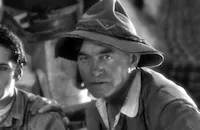
Harry Carey

William Demarest

Louis Jean Heydt
Julius Tannen
Edwin Maxwell
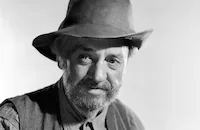
Porter Hall
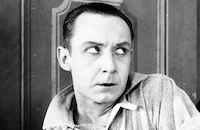
Franklin Pangborn
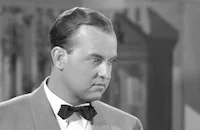
Grady Sutton
Donivee Lee
Harry Hayden
Torben Meyer
Vic Potel
Esther Michelson
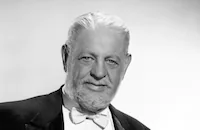
Thurston Hall

J. Farrell Macdonald
Robert Dudley
Robert Frandsen
Sylvia Field
Reginald Sheffield
Robert Greig
Sheila Sheldon
Harry Rosenthal
Frank Moran
Wilson Benge
George Anderson
Dewey Robinson
Alan Bridge
Georgia Caine
George Melford

Roscoe Ates
Emory Parnell
Arthur Stuart Hull

Chester Conklin
Sheldon Jett
Esther Howard

Byron Foulger
Harry Tyler
Kenneth Chryst
Henry Roquemore
Laurie Douglas
Max Wagner
Jacob George
Walter Soderling
Paul Newlan
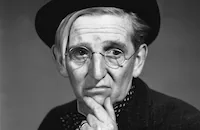
Jimmy Conlin
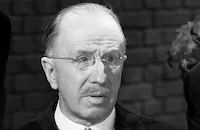
Arthur Hoyt
Keith Richards

Sig Arno
Joseph King
Alfred Hall
Ed O'neill
Donnie Kerr
Billy Sheffield
Janet Chapman
Tricia Moore
Crew
Claire Behnke
Edmund Bernoudy
Richard Blaydon
B. G. Desylva
Hans Dreier
Ernst Fegté
Stuart Gilmore
Edith Head
Harry Lindgren
Victor Milner
Walter Oberst
Steve Seymour
Preston Sturges
Waldo Twitchell
Wally Westmore
Victor Young

Film Details
Technical Specs

Articles
The Great Moment
The film tells the true story of W.T.G. Morton, the Boston dentist generally credited with initiating the use of anesthetic in surgery. Sturges crafted the screenplay along the lines of his most prestigious script of the 1930s, The Power and the Glory (1933), starting in 1868, after Morton's death, then flashing back through various periods of his life. The story follows (not in strict chronological order) Morton's early struggle, his first use of Letheon (actually the common cleaning fluid ether), and the great acclamation that followed. Then in 1848, he reveals the true nature of Letheon in order to save a young girl from a very painful operation; with his secret out, Morton has sacrificed a potential fortune. His life in ruins, he retires to a small farm with his not-so-sympathetic wife. There he gets the news that Congress has awarded him a long-overdue $100,000, if he will defend his patent in court against an Army surgeon making claims on it. But the press accuses him of profiteering, and his patent is disallowed. Sturges based his script on Rene Fulop-Miller's book Triumph over Pain, which caused a storm of controversy when it was first published. Many disputed its claims that Morton was the first or sole discoverer of ether as an anesthetic. The film version, originally titled Great Without Glory, proved to be as much of an undoing for Sturges.
Although his movies were for the most part critically well received at the time and have since been recognized for their outstanding achievement, Sturges' reputation at the studio rested largely on his one runaway hit, The Lady Eve. Paramount production executive Buddy DeSilva didn't much trust Sturges, particularly resenting the control the director had over his projects, and found the whole story of The Great Moment repulsive and unsuitable for mainstream audiences. He also did not want Joel McCrea in the lead and objected to a foreword in which Sturges had written about the hardships suffered by those who "consecrated their lives to (man's) further comfort and well-being so that all his strength and cunning might be preserved for the erection of ever-larger monuments to the eternal glory of generals on horseback, politicians and other heroes who led him, usually from the rear, to dismemberment and death." Not a great sentiment, studio bigwigs reasoned, for a country in the midst of a world war. Paramount also had a problem with the comic tone of some of the picture - including bumbling accidents and slapstick - which was carried primarily by Sturges' "stock company" actor William Demarest in one of his strongest and most important roles. DeSilva pulled the picture from Sturges' control, retitled it, and attempted to redit it (making it confusing for audiences). Even though it had been brought in on budget and a day under schedule, the movie flopped, making it the only Sturges film at Paramount to fail to turn a profit. It was held back from release for two years. By then, Sturges had left the studio and begun his sad decline.
Nevertheless, The Great Moment is well worth seeing for a number of reasons. In an era when Hollywood bio-pics tended to be over-inflated and sentimental, Sturges' irreverent approach and subtle satire is refreshing. The flashback style, for which the director was so vilified by the studio, makes an interesting comparison to both The Power and the Glory and Orson Welles' Citizen Kane (1941), whose script was said to be heavily influenced by Sturges' work on the earlier film. It's also interesting to watch Sturges' stock company of comic character actors (Demarest, Franklin Pangborn, Grady Sutton, and others) in more serious period roles. And there is also McCrea, one of the most underrated performers of his time. The actor once told Sturges, who was writing Sullivan's Travels especially for him, that he only got good roles when Gary Cooper wasn't available (and this project was originally purchased with Cooper in mind). But he was one of Sturges' favorites and did some of his finest work in the director's movies; in addition to Sullivan's Travels and this film, he was in The Palm Beach Story.
Producer/Director: Preston Sturges
Screenplay: Preston Sturges, based on the book Triumph over Pain by Rene Fulop-Miller
Cinematography: Victor Milner
Editing: Stuart Gilmore
Production Design: Hans Dreier
Original Music: Victor Young
Cast: Joel McCrea (W.T.G. Morton), Betty Field (Elizabeth Morton), William Demarest (Eben Frost), Harry Carey (Professor Warren), Porter Hall (President Pierce), Franklin Pangborn (Dr. Heywood).
BW-87m.
by Rob Nixon

The Great Moment
Quotes
"He's going to be a dentist!" (weeps on her mother's shoulder)- Elizabeth Morton
"Oh, and he seemed such a nice young man."- Mrs. Whitman
Trivia
Originally a much more serious film. After picking up some confused reviews Paramount insisted that it be recut.
Notes
The working titles of this film were Immortal Secret, Great Without Glory, Morton the Magnificent, and Triumph Over Pain. Preston Sturges' onscreen credit reads, "Written and directed by..." and the literary source credit reads, "A screenplay based on a book by René Fülöp-Miller." Actor Julius Tannen's first name was incorrectly listed in the credits as "Julian." The film opens with the following written foreword: "It does not seem to be generally understood that before ether there was nothing. The patient was strapped down...that is all. This is the story of W. T. G. Morton of Boston, Mass., before whom in all time surgery was agony, since whom science has control of pain. Of all things in nature great men alone reverse the laws of perspective and grow smaller as one approaches them. Dwarfed by the magnitude of his revelation, reviled, hated by his fellow men, forgotten before he was remembered, Morton seems very small indeed until the incandescent moment he ruined himself for a servant girl and gained immortality." History records that Morton's claim of the discovery of anesthesia was indeed contested by his peers, and that he died in poverty after spending the last years of his life embroiled in a legal battle.
Information in the Paramount Collection at the AMPAS Library reveals the following information about the production: In September 1939, before the film was to go into production, Paramount consulted with historians and dental organizations to verify the screenplay's depiction of Morton, but found opinion divided as to his character, and whether or not he actually "discovered" anesthesia. The 1939 screenplay was written by Preston Sturges, Irwin Shaw, Les River, Charles Brackett and Waldo Twitchell. Arthur Hornblow, Jr. and William LeBaron were slated to produce, Henry Hathaway was to direct, Gary Cooper was to play "Morton" and Walter Brennan was to play "Frost." It is doubtful that any scenes were actually shot at this time, and no contemporary information has been found as to why the production was delayed until 1942. Modern sources indicate that the project was delayed in part because of Gary Cooper's departure from the studio.
Paramount records indicate that in 1942, Paramount bought the film rights to Loew's Inc.'s short film "Life of William Morton, Discoverer of Anesthesia," intending to use it as a basis for this film. Screen credits, however, list only Fülöp-Miller's book as a source. After Sturges was hired to direct the film, Paramount considered actor Walter Huston for the lead. Sturges and Ernst Laemmle then revised the original screenplay. In his autobiography, Sturges noted that he shot the following foreword: "One of the most charming characteristics of Homo sapiens, the wise guy on your right, is the consistency with which he has stoned, crucified, hanged, flayed, boiled in oil and otherwise rid himself of those who consecrated their lives to further his comfort and well-being, so that all his strength and cunning might be preserved for the erection of ever larger monuments, memorial shafts, triumphal arches, pyramids and obelisks to the eternal glory of generals on horseback, tyrants, usurpers, dictators, politicians, and other heroes who led him, from the rear, to dismemberment and death. This is the story of the Boston dentist who gave you ether-before whom in all time surgery was agony, since whom science has control of pain. It should be almost unnecessary then to tell you that this man, whose contribution to human mercy is unparalleled in the history of the world, was ridiculed, reviled, burned in effigy and eventually driven to despair and death by the beneficiaries of his revelation. Paramount Pictures, Incorporated, has the honor of bringing you, at long last, the true story of an American of supreme achievement-W.T.G. Morton of Boston, Massachusetts, in a motion picture called Triumph Over Pain."
According to Sturges' autobiography and other modern sources, the film's release was delayed because Paramount disliked Sturges's non-sequential arrangement of the film, specifically the fact that he opened the film with what is now the end, in which Morton sacrifices his success to save a young girl from the pain of surgery. Paramount also rejected his original foreword as being inappropriate for war-time. After Sturges left Paramount due to contractual disputes, Paramount re-cut the film, leaving a heavy emphasis on the story's comedic aspects, and despite Sturges' objections, changed the title. Some of the above-listed actors who were included in the CBCS were not identified in the viewed print and May have been cut from the final print.

Miscellaneous Notes
Released in United States 1944
Released in United States 1974
Released in United States on Video November 15, 1990
Re-released in United States on Video June 30, 1993
Released in USA on laserdisc October 26, 1994.
Released in United States 1944
Released in United States 1974 (Shown at FILMEX: Los Angeles International Film Exposition (The Preston Sturges Movie Marathon) March 28 - April 9, 1974)
Re-released in United States on Video June 30, 1993
Released in United States on Video November 15, 1990














